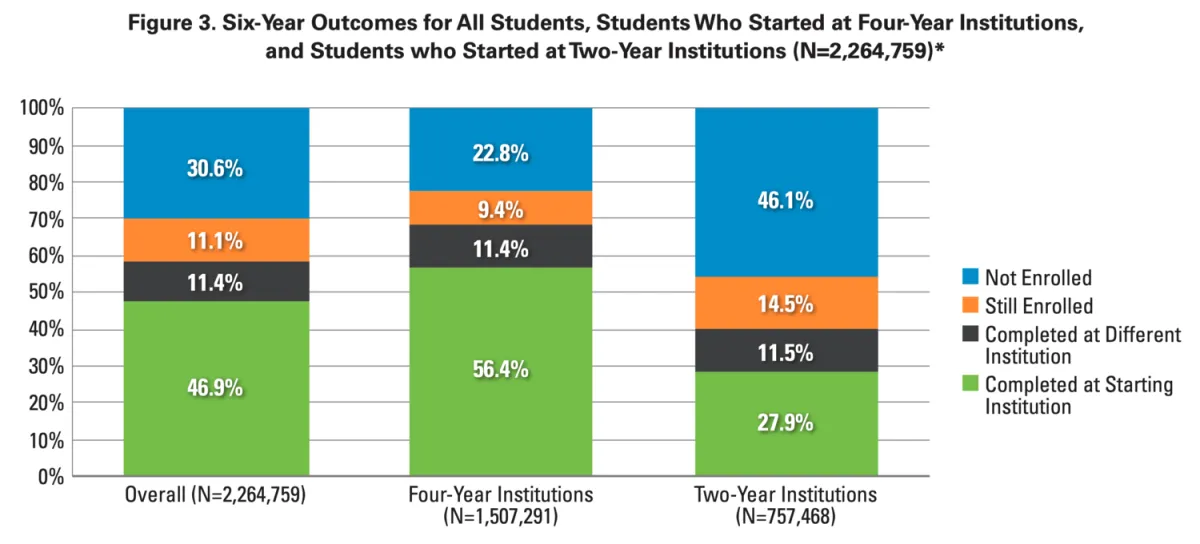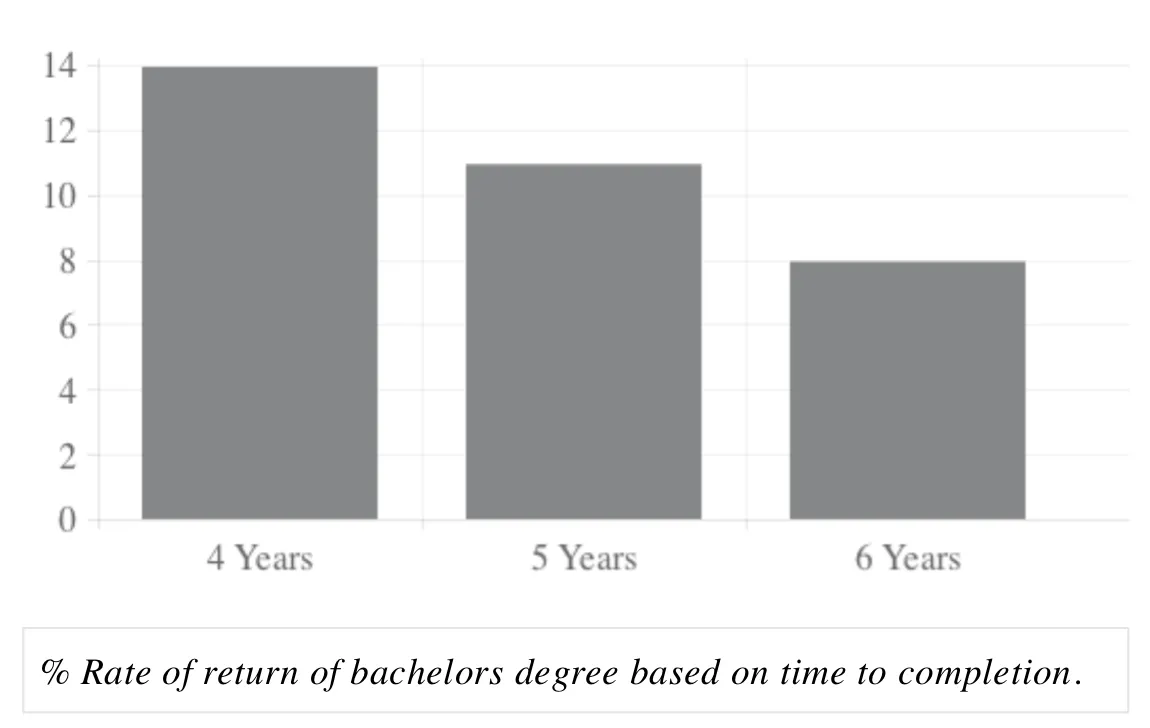1. Understanding 4-year graduation rates will significantly reduce your college expense.
Old Way
We evaluate college cost by “cost of going.” We pay zero attention to 4-year graduation rates.
Old Result
We end up reducing the value of your student’s college degree by hundreds of thousands of dollars over their lifetime. With delayed graduation, the “cheaper” in-state college ends up being the most expensive college you could possibly buy.
New Way
We evaluate colleges by the “cost of graduating.” We adopt a college planning strategy that is 4-year graduation centric ; from how we evaluate majors to an analysis of academic fit, retention rate, and, of course, 4-year grad rate.
New Result
The national average of a 4-year graduation is 19%* . By employing an on-time graduation strategy, over 90% of our students graduate in 4 years and many get their degree at the lowest possible cost.
Source: Complete College America - Data Dashboard
The single best way to minimize your college expense is to simply graduate on time.
Often times, it’s not the lack of ability or the motivation of the student that holds them back. There are institutional limitations that slow down graduation and increase cost. The two most common are:
1. Too many students and not enough teachers on campus. When it is time to register for classes, classes needed to graduate are already full.
2. Students take whatever classes are left to maintain full-time status and scholarship requirements. Classes that do not count towards their major represent wasted time, effort and dollars.
Source: Complete College America
Instead of asking how much it costs to go to college, we need to ask “how much does it cost to graduate?”

Keep in mind that 6-year completion rates are presented here. The 4-year rates look much, much worse.
Inflating college costs and and excessive student loan debt are certainly problematic today, but these issues are only symptomatic of a root cause: college completion . Most students never even finish college, leaving them unable to pay their student loans.
Source: National Student Clearinghouse Completing College: A National View of Student Completion Rates
6 out of 10 students will not have a degree after six years.
Source: Elisa Nadworny - NPR Special Series: Changing Face of College . March 13, 2019
The rate of return of a bachelors degree is reduced by 40% when completed in 6 years instead of 4 years.

Sources: US Census Bureau and US Bureau of Labor Statistics, 2013 Current Population Survey, March Supplement; US Department of Education, Digest of Education Statistics 2012, The College Board Trends in College Pricing 2013, and Trends in Student Aid 2013
Staying in college longer than four years will cost you a lot more than you think.
First, students who spend an extra one or two years in school as a full-time student incur an opportunity cost in the form of forgone earnings. Economists measure this cost as the wages one could have earned with a college degree had one graduated a year or two earlier. Second, entering the job market a year or two late damages students’ lifetime earnings profile. In addition to giving up one or two years of college-level earnings while in school, students miss out on a year or two of experience and the extra push that gives their wages over their working life.
Source: Jaison R. Abel and Richard Deitz - Liberty Street Ecomonics September 3, 2014
FAQ
How is this true? At the college tour I attended, I was told that the grad rate was 86%.
Many colleges quote “grad rate.” Notice there is no number mentioned. When colleges quote “grad rate,” they are usually quoting their 6-year rate. This begs the question: Why are they giving you the 6-year rate?
I know someone that finished in 4 years. Is this really true?
We didn’t say zero students are getting done on time. We are saying that not many are. Also, did the student you know spend extra money and time taking classes over the summer?
Isn’t this just a scare tactic? l was able to finish college in 4 years.
A lot has changed. The number of students going to college today has doubled since you went to college. This creates many college campuses that are simply too crowded and unable to accommodate all of their students. Ask around, you are going to see that delayed graduation or no graduation is a reality for most students.
©2026 Game Theory College Planners, Inc. All rights reserved. Privacy Policy | Terms of use | We are a national service provider based in Atlanta, GA.

